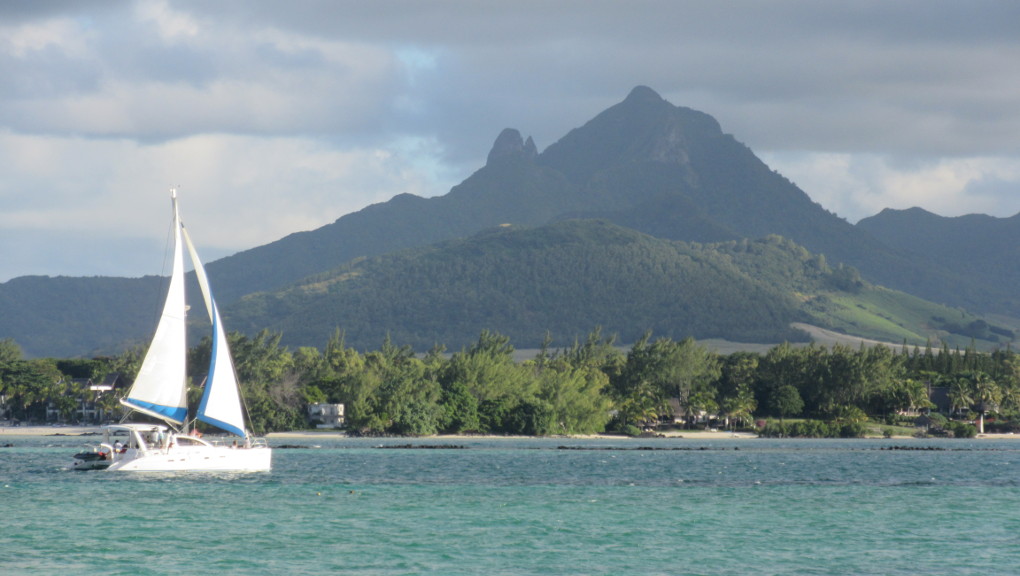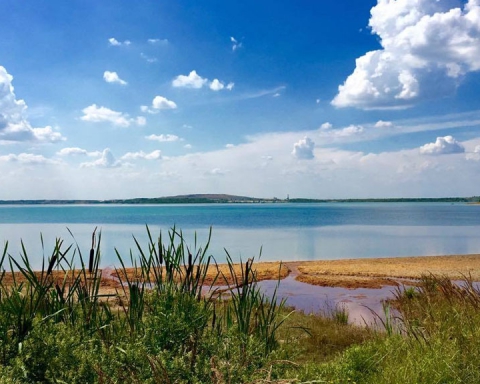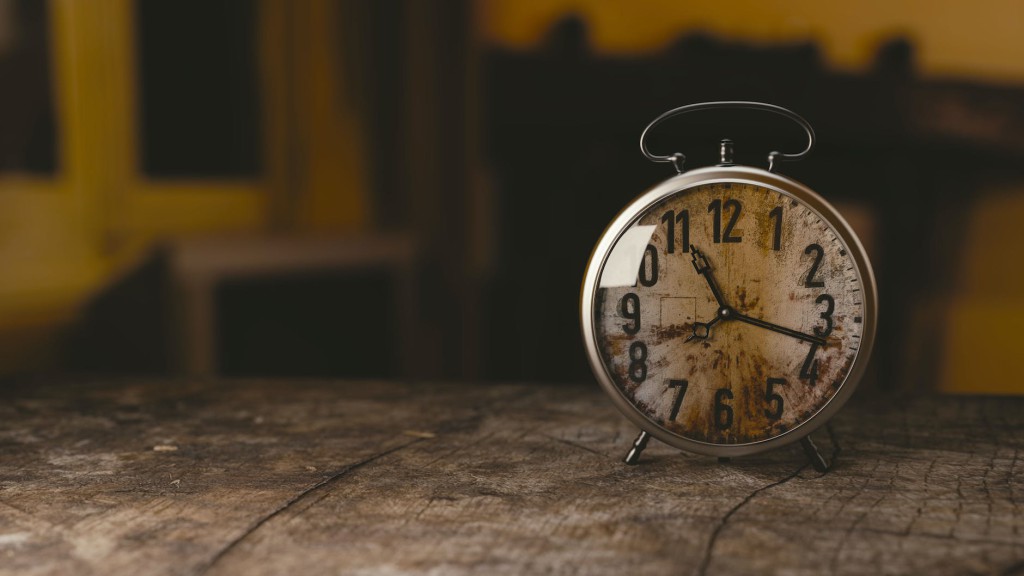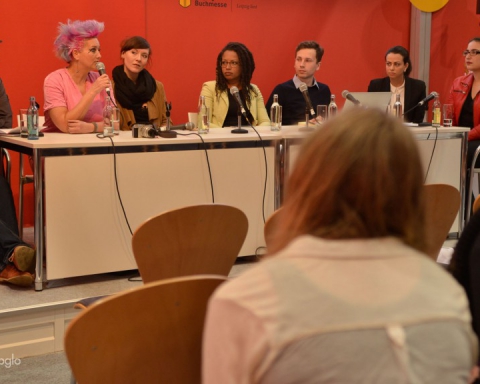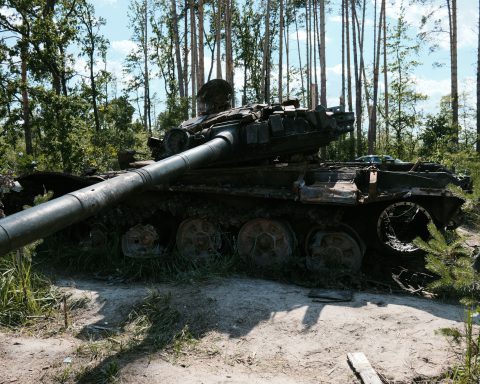When you fly above Mauritius, 2,000 km off the eastern coast of Africa, you can clearly make out the line where the calm inner turquoise meets the far vaster dark blue of the surrounding Indian Ocean, scribbled on by scraggly white waves right outside the “border.”
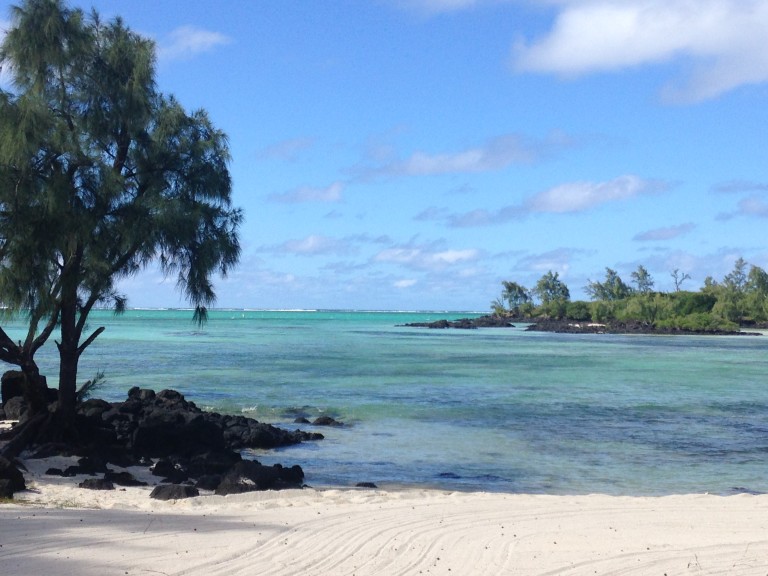
Our local host during our recent visit told us that the Mauritian coral reefs act like a force field against the waves. They protect the small island state, population 1.3 million, against their sudden growth spurts and aggressive tendencies. Also, unlike in neighboring La Réunion, sharks are not expected to hang around the island’s resorts.
As a result, snorkeling in Mauritius is often like dunking your head into a swimming pool, except way funner and a little like an obstacle course. There’s a wide assortment of colorful patterned fish who’ll stare you right in the face (stare back but don’t touch), the sharp rocks and flora (stay horizontal), and the rich saltiness pushing you up into floating in the shallow waters (thus more easily avoiding the sharpness).
For my boyfriend and I, who just marginally dabble in adventure travel, Mauritius hit the spot, beyond the fish ogling.
We didn’t need any vaccinations or prophylactic meds (in fact, we’re told that authorities closely monitor the health of visitors, even quarantining someone with a high fever, to keep the island pestilence-free). Crime is relatively low (although we’re told it’s on the rise due to the drug trade, especially among people who know each other). Like many of the locals, we speak French and English, which helped a lot with navigation, since often signs were lacking and we had to ask people for directions.
Mauritius, a dot on the Indian Ocean when compared to nearby Madagascar, became independent in 1968 after centuries under the Dutch, French and then the British. They killed off the native dodos already in the 17th century, though somehow they remain the Mauritian mascot.
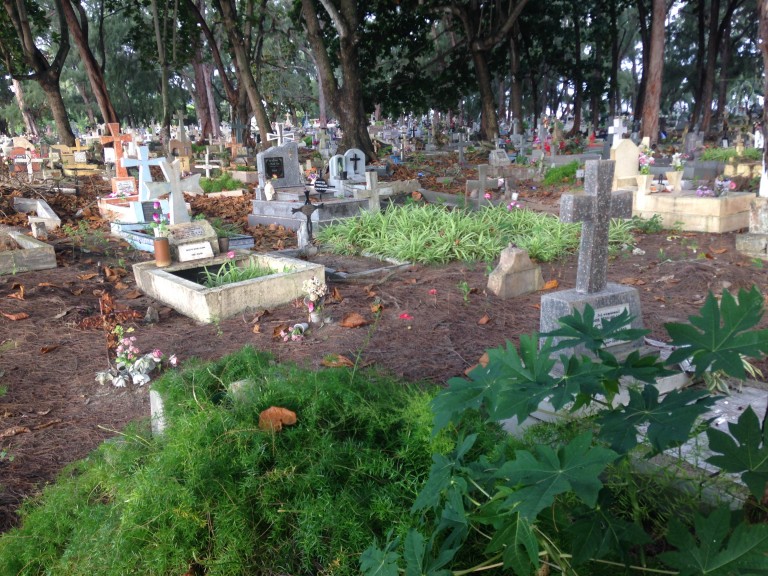
Like legendary American writer Mark Twain, who once toured Mauritius himself, I wouldn’t go as far as calling the island stunning – although it is certainly eye-catching.
The people are what I’ll remember the most from Mauritius. People who plant gardens on top of their loved ones’ burial sites, making Mauritian cemeteries places where continuously blossoming life rather than death shines through.
For all the beauty of Mauritian turquoise bays, lush green hills and sugarcane fields (their main crop), for all the remarkable contrasts among resort towns and the chaotic capital Port Louis and the tiny Trou d’Eau Douce where my boyfriend and I stayed, for all the interestingly hybrid food we got to try (Indo-Chinese-Mauritian) – and let’s not forget, of course, the balmy warm waters and near-perfect weather we caught in winter – the best part of our stay was interacting with the locals.
Much of the tiny country’s densely packed population descends from former indentured laborers brought in from Africa and Asia, especially India. They coexist peacefully today under their Hindu, Christian and Muslim faiths, attending each other’s religious parties, sharing cemeteries, selling each other’s idols in their stores.
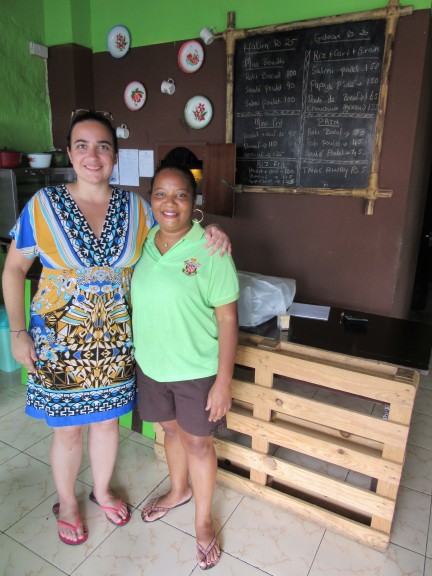
Mauritians were curious about us while respectful and courteous, friendly without being flirty, attentive without being pushy.
This makes the Flacq Market a pleasant place to shop and sample local street food. It also made us want to get to know people beyond touristy encounters during our week on the island.
Some of my favorite interactions in Mauritius range from exchanging a simple “bonjour” in the street and seeing someone’s smile light up, to having small business owner Nicole remember details we had told her and set out a special breakfast for us at her highly affordable restaurant serving Mauritian specialties (L’Assiette Longtemps), to spending hours talking to our wonderful host Annalisa (La Maison Soleil) in the evenings over Phoenix beers, homemade cake, yummy locally grown fruits and the company of her beloved dogs.
Dogs, by the way, are unavoidable in Mauritius. When you arrive at the airport in the southeast and pull out onto the road, you will be met by a welcoming canine committee that will follow you for the rest of your trip. Also, don’t count on sidewalks or comfortable space between dogs, speeding cars and pedestrians.
Often a visitor’s interaction with the stray dogs doesn’t go beyond being on the receiving end of a bark or cringing as the car swerves to miss them, but sometimes one does form a connection, fleeting as it may be.
Another favorite memory of mine is precisely feeding stray puppies at a Hindu temple with our very kind new Mauritian acquaintance Arvind, who has many foreign friends. He is an engineer for a living, and does art in his free time.
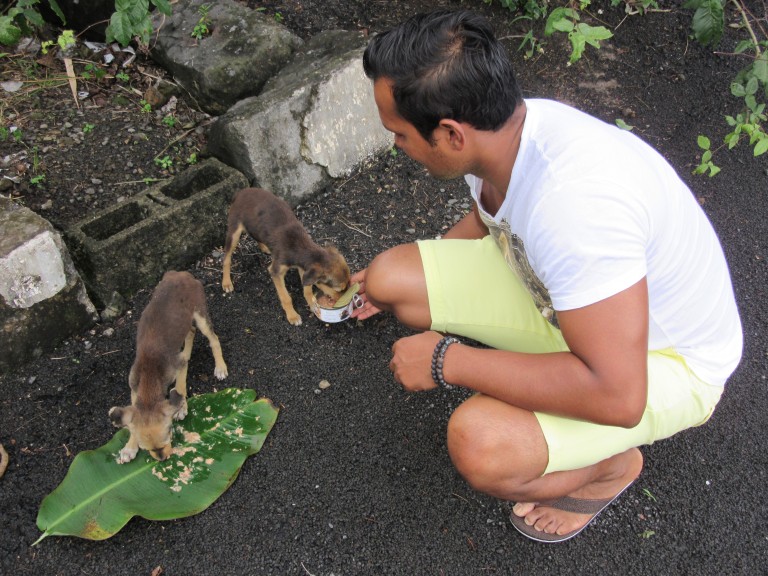
Arvind later handed us fruits from one of the temples which he meticulously showed and explained to us, and then surprised us with a very thoughtful gift to remember our visit by (no, not a puppy – the likeness of a Hindu god, rather).
The Mauritians also made an impression on Twain when he visited back in 1896.
He writes about his experiences on the island, then controlled by the British, in the 1897 book Following the equator; a journey around the world (pp. 617-629). A quote often attributed to Twain – “Mauritius was made first, and then heaven, and heaven was copied after Mauritius” – is not quite what he wrote. He was actually quoting a proud local.
Twain observed in his book:
“This is the only country in the world where the stranger is not asked ‘How do you like this place?’ This is indeed a large distinction. Here the citizen does the talking about the country himself; the stranger is not asked to help. You get all sorts of information. From one citizen you gather the idea that Mauritius was made first, and then heaven; and that heaven was copied after Mauritius. Another one tells you that this is an exaggeration; that the two chief villages, Port Louis and Curepipe, fall short of heavenly perfection; that nobody lives in Port Louis except upon compulsion, and that Curepipe is the wettest and rainiest place in the world.”
Some Mauritians keep close ties in their daily routine to the land where their ancestors came from centuries ago.
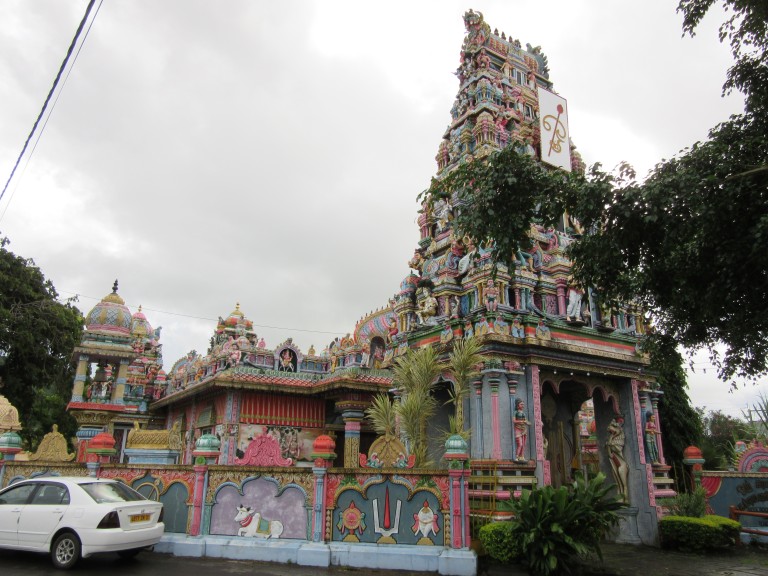
The mother at the comfortable family-owned b&b where I crashed the first night while waiting for my boyfriend’s arrival (Golden Shell Residence) has visited India and watches Indian soap operas regularly, she told me as we shared a meal of pancakes with deer and chili sauce. Her young son Aki says he has only left the island to go across the bay, though; he doesn’t have the travel bug like his mom.
Besides setting up a glorious day-long catamaran tour for us (the only traditionally touristy activity we did the whole trip), Aki drove us from and to the airport for a lot cheaper than other offers, and very early in the morning. I wouldn’t try the bus for that, but did use it on a daily basis to tour Mauritius.
Public transportation in Mauritius is decent despite being quite slow, and definitely has character. The retrofitted buses are painted and decorated differently and bear funny nicknames like “Highway Fighter” (definitely fitting); “Birds of Paradise” (also makes sense, except for the flying part); “Always Flirting;” “Roi de l’Est;” “Star of Hollywood: born to go ahead;” “Virgin Blue: the ultimate driving machine;” and “Robin Hood Travel: here comes the pain.” They sometimes play club music in the evenings.
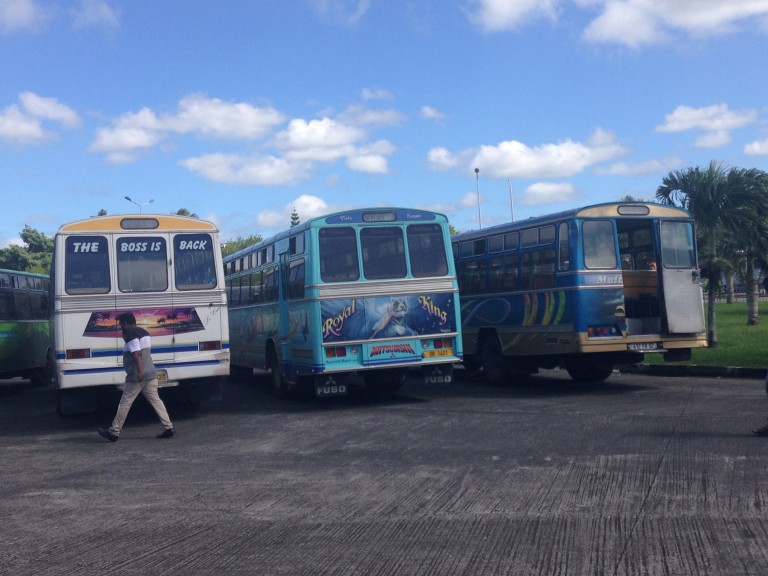
I’m not sure how Twain traveled around Mauritius back in the 19th century, but he seemed to have a relaxing – rather than mind-blowing – time there (p. 629):
That is Mauritius; and pretty enough. The details are few, the massed result is charming, but not imposing; not riotous, not exciting; it is a Sunday landscape.
Following the recommendation of a former Mauritius resident who now lives in Leipzig, we opted for staying in Annalisa’s small b&b in Trou d’Eau Douce, on the east coast of the island. The studio where we stayed was spacious and fully equipped, for the price of a shared hostel room in Europe; also, she has a pool where we went for a night swim, a hammock, and a big yard where she grows things. It reminded me of family holiday places from my childhood in Brazil.
The choice turned out to be quite fortunate, and we saved a lot of money. We avoided the tourist hubs of Flic en Flac in the west or Grand Baie in the north – except for a short visit and dip in the sea in the latter – and in return got an authentic experience (meaning mostly not standardized for tourists).
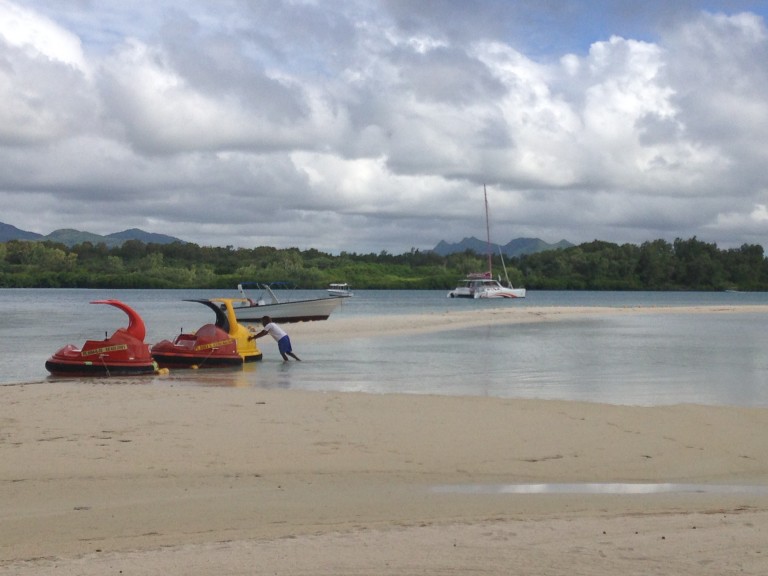
We also opted for taking the bus for about 70 Mauritian rupees – less than €2 – per person both ways for reaching different parts of the country, which you can cross within a couple of hours via the well maintained, albeit narrow, motorways. We were practically the only tourists riding the bus from and to the village (others preferred paying 100 times more for speedier, more comprehensive private tours). If you get on the road and have time to smell the proverbial roses, look out for some adorable nicknames given to villages.
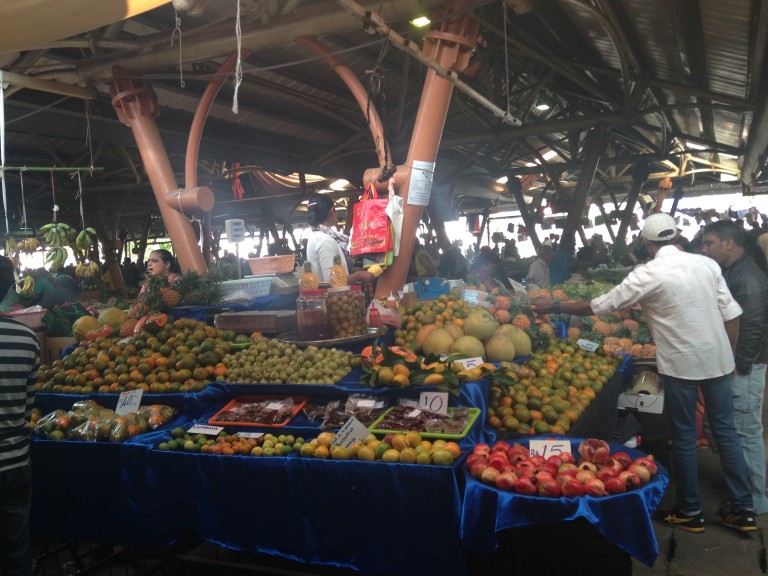
Within a couple of days, the bus operators knew us upon sight and yelled to make sure we were waiting on the right spot and didn’t miss our ride, for example on the way to and from the market in Flacq.
I wonder if the Mauritians we came across will somehow remember us too, and as fondly.
LeipGlo’s Maximilian Georg contributed to this report.

